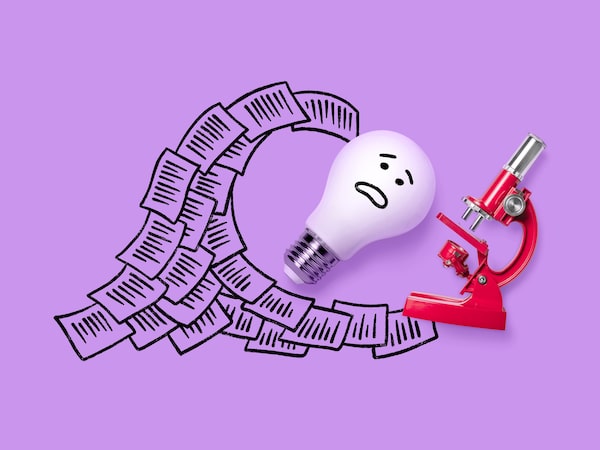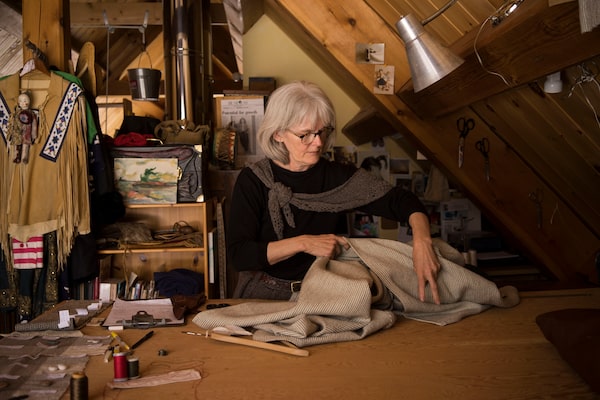Good morning, and welcome to the weekend.
Grab your cup of coffee or tea, and sit down with a selection of this week’s great reads from The Globe. In this issue, we look at Gen Z and how the events of the last six years, including a global pandemic, have shaped a generation that remains a force to be reckoned with – despite its pessimism about the world and the future ahead.
Konrad Yakabuski turns his lens on the Liberal government’s plan to ramp up immigration to levels unseen in a century and questions its shaky premise that this would be good for the economy.
Barry Hertz writes about the state of crisis Canada’s independent movie theatres find themselves in as they face mounting challenges, including increasingly restrictive demands from the studios and distributors that provide films to theatres.
If you’re reading this on the web, or it was forwarded to you from someone else, you can sign up for Great Reads and more than 20 other Globe newsletters on our newsletter sign-up page. If you have questions or feedback, drop us a line at greatreads@globeandmail.com.
Gen Z is a climate-anxious, pessimistic force to be reckoned with
Hannah Zilke, 19, in Calgary on Saturday, Oct. 21, 2023, has chosen to delete her social media from her devices, saying it’s not made for people. Zilke has experienced a great deal of stress about the current state of the world and the future. She seems the mental illness spike that social media continues to stoke, thick layers of smoke billowing over the city each summer, and she foresees the world will likely face a fresh water shortage in her lifetime. All these things, plus the fact she has a short temper and kids get on her nerves, have made her decide not to have children, a sentiment held by many Gen Z’s. (Photo by Jude Brocke/The Globe and Mail)Jude Brocke/The Globe and Mail
When The Globe and Mail surveyed young Canadians, one of the things they emphasized is that older generations won’t give them a say in their own future. Gen Z is anxious about what’s to come – including financial pitfalls and the ravages of climate change – but this pandemic-hardened cohort also exhibit an unexpected resilience, and still have hope that they can fix the problems they’ve been handed.
Canadian Prime Minister Justin Trudeau, centre, overlooks the construction of new housing in Brampton, Ont., Oct. 20, 2023.Nathan Denette/The Canadian Press
In 2022, Canada’s population grew by 2.7 per cent – a rate that is among the highest in the world outside of Africa – and by June 16, it had surpassed 40 million. Almost all of the increase – 95.6 per cent – was the result of immigration. In his opinion piece, Konrad Yakabuski takes a closer look at the breakneck population growth, and whether the Liberal government’s assumption that a high level of immigration would be good for the economy holds true.
The Royal Theatre in Trail, B.C.DAVE HEATH/Handout
Independent Canadian theatres have reached an inflection point: A mounting list of challenges has their owners wondering about the path to survival, especially if they serve smaller communities. Factors related to the state of the industry and the global economy as a whole play a large part in the crisis. But the No. 1 issue for respondents to a recent survey is the increasingly restrictive set of demands from studios and distributors, who tend to apply broad rules that may be appropriate for urban cinemas but can harm the ability of indies to stay in business.
Families of Israeli hostages protest government failure to bring loved ones home

A mother holding her daughter and a rifle walks near signs calling to bring the hostages home ahead of a special ‘Kabalat Shabbat,’ (welcoming the Shabbat) prayer service outside Hakirya on Oct. 27, 2023 in Tel Aviv, Israel. In the wake of the Oct. 7 attacks by Hamas.Alexi J. Rosenfeld/Getty Images
In the days following the Hamas attack, most of the families of the more than 220 Israelis taken by the gunmen into Gaza were careful not to question the Israeli government’s handling of the hostage crisis. But it’s been three weeks since the Oct. 7 attack that left more than 1,400 Israelis killed, and the patience of the hostages’ families has run out. The Globe and Mail’s Geffrey York, who has been reporting from Israel since shortly after the attack, spoke with some of the families of the hostages who have now formed a volunteer organization, the Hostages and Missing Persons Families Forum, to put pressure on the government to do more to bring the hostages home.
Opinion: Untangling the great policy mess of Canada’s innovation problem

Illustration by Domenic Bahmann
Canada’s falling productivity and national wealth can be traced back to our shortfalls in funding independent research. Over decades, the impact of inadequate funding and messy innovation policy have rippled out to the economy and society. For the sake of this country’s future, David Naylor and Stephen J. Toope our governments must do better.
Tech-savvy Ukrainian soldiers swap machine guns for drones in fight against Russia

Nazar Yuschenko, left, in the field with an unnamed comrade with an M2 Browning heavy machine gun.Handout
As a machine-gunner, Nazar Yuschenko quickly realized that lack of aerial intelligence put him and his fellow Ukrainian fighters at a big disadvantage: they could not visually detect Russian troop and armour movements beyond their line of sight. That all changed when Yuschenko, who along with two other tech-savvy young soldiers, got an inexpensive Chinese-made drone as a gift in the summer of 2022. Yuschenko helped launch some surveillance tests, and soon was assigned to launch the Ukrainian army’s Icarus unit in charge of unmanned aerial vehicles.
Canadian wool is ‘fuzzy gold’ – so why isn’t it getting into the hands of consumers?

Wave Weir in her studio Wave Fibre millEmily Neill/Wave Fibre mill
As fabrics go, wool is a miracle product. The natural fibre is comfortable, practical and good for the Earth, too – it’s fully biodegradable and requires less energy to produce than synthetic textiles. There’s just one problem: with prices for wool so low and processing plants so few, many Canadian farmers are simply throwing it away. But as Kat Tancock reports, things might be taking a turn. She looks at the growing efforts to bring this “fuzzy gold” to market and build regenerative farming practices that will revive Canada’s national wool industry.
Take our arts quiz to test your knowledge of the latest arts and culture news.
Bonus: What’s the best Canadian Halloween movie ever made?
a. Skinamarink
b. Ginger Snaps
c. The Fly
d. Pontypool